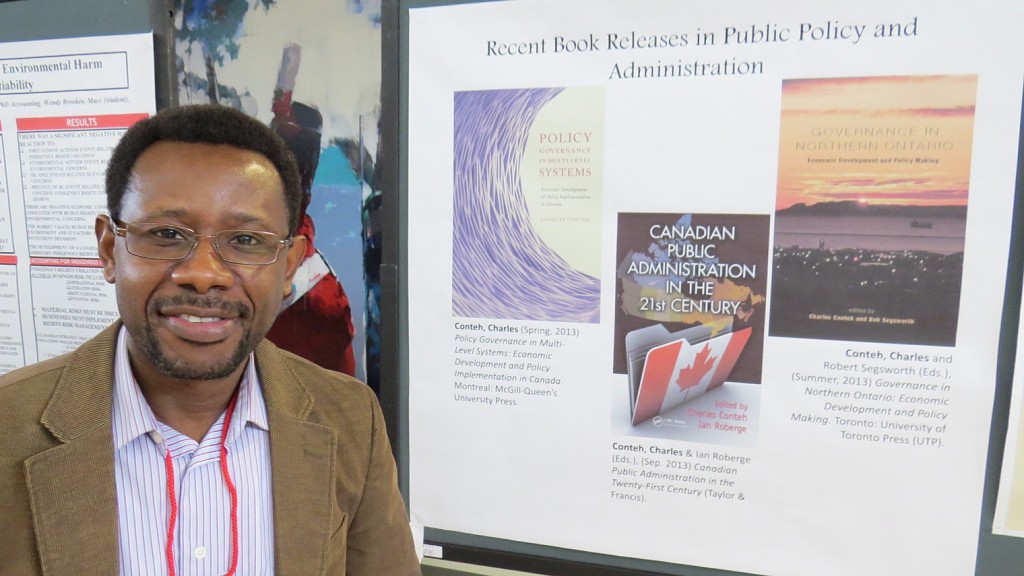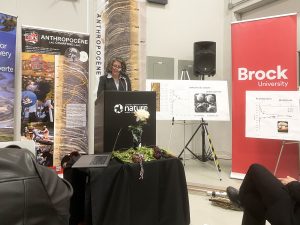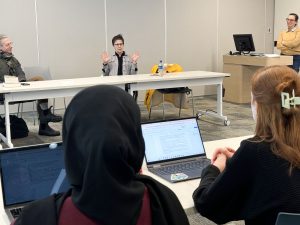
Brock University political scientist Charles Conteh wrote a report on FedNor for the Northern Policy Institute.
New research calls for the federal government to restructure its Northern Ontario economic development organization FedNor to better meet the needs of local communities.
“The current mandate, structure, and approach to regional economic development of the Federal Economic Development Initiative for Northern Ontario have a detrimental effect on the organization’s policy engagement in the region,” says Brock University political scientist Charles Conteh, who wrote the report, released June 9 by the Northern Policy Institute.
He calls for FedNor to be more independent from Industry Canada, where it is currently housed, allowing it “to be more locally embedded and responsive to initiatives of the local private sector and community groups.”
FedNor came under fire recently when MP for Thunder Bay-Rainy River John Rafferty accused FedNor of under spending by $8.5 million from 2013-14 and reducing the overall budget yearly since 2008 (http://www.cbc.ca/news/canada/thunder-bay/ndp-mp-says-8-5m-in-fednor-funding-went-unspent-1.3082583).
The report “FedNor: It’s Just Got to be Free: Toward More Strategic and Collaborative Governance of Regional Economic Development in Northern Ontario,” (https://northernpolicy.files.wordpress.com/2015/06/paper-fednor-its-just-got-to-be-free.pdf) lists five recommendations for restructuring FedNor:
· FedNor should be structured to allow for greater operational discretion and autonomy from Industry Canada
· FedNor should abandon its current project-centric approach of allocating disparate grants to a wide number of projects in favour of supporting a small number of larger investments designed to build the capacity of value-added and knowledge-intensive economic clusters
· FedNor should adopt formally the Growth Plan for Northern Ontario as the policy framework for the region
· FedNor should institutionalize a collaborative approach to program delivery by developing comprehensive five year formal partnership agreements with Ministry of Northern Development and Mines (MNDM) and the Northern Ontario Heritage Fund Corporation (NOHFC) for larger investments that support the emerging priorities targeted in the Growth Plan for Northern Ontario
· Because Northern Ontario is not one homogenous region, the partnership agreements should focus on supporting SMART programs identified through a comprehensive process of consultative strategic planning by five regional economic zones or sub-regions. These sub-regions should be a partnership with the region’s five major cities and their surrounding communities to coordinate the development and delivery of economic development programs.
“Regional economic development in Canada is no longer about economic equalization for economically disadvantaged regions through redistributive programs, but increasingly about creating the institutional infrastructure and making critical investments needed to mobilize a region’s economic assets to allow it to become more economically diverse and globally competitive,” says Conteh.
FedNor (http://fednor.gc.ca/eic/site/fednor-fednor.nsf/eng/Home) funds come mostly from the Northern Ontario Development Program, which has three main priorities: community economic development; business growth and competitiveness; and innovation.
Through its Community Futures Program, FedNor supports a network of 24 Community Futures Development Corporations across Northern Ontario, which provide business financing and services and community-based economic development projects. (http://fednor.gc.ca/eic/site/fednor-fednor.nsf/eng/fn03993.html)
Northern Policy Institute is Northern Ontario’s independent think tank that undertakes research, collects and disseminates evidence, and identifies policy opportunities to support the growth of sustainable Northern communities.









